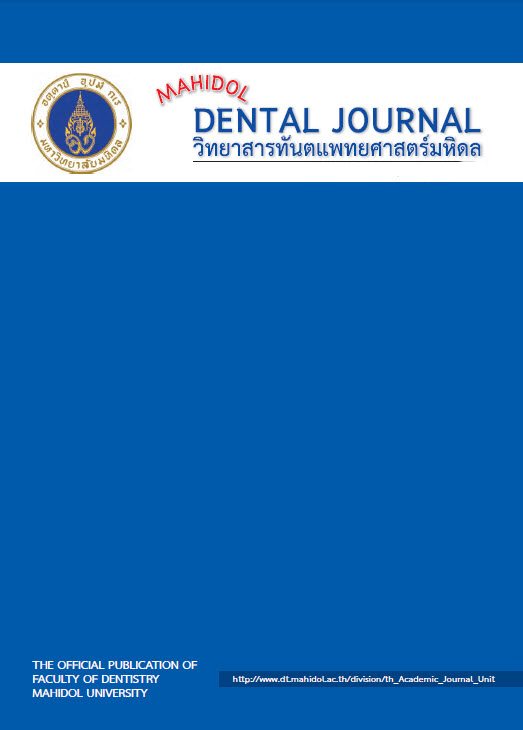Romosozumab: New anti-osteoporosis agent approved by food and drug administration of the United States
Main Article Content
Abstract
Romosozumab, an anti-sclerostin monoclonal antibody, is the recently-approved anti-osteoporosis agent by the US Food and Drug Administration since April 2019. It is recommended to treat osteoporosis in postmenopausal women, anyone at high risk fracture and history of failed osteopenic treatment, with monthly dose of 210 mg subcutaneously-injected route to optimize the best benefit. The superior performance of romosozumab is different from other drugs. It increases bone formation while decreases bone resorption. Clinical studies have shown that romosozumab could promote bone mineral density in lumbar spine, total hip, and femoral neck in postmenopausal osteoporosis. Patients with osteoporosis might have invasive dental treatment which probably leads to a complication due to their medication. For that reason, dentists should basically know about this new drug. This article describes mechanism of action, clinical studies, pharmacological properties, and safety of romosozumab. Furthermore, the suggestion for dental consideration of patients with romosozumab is provided.


